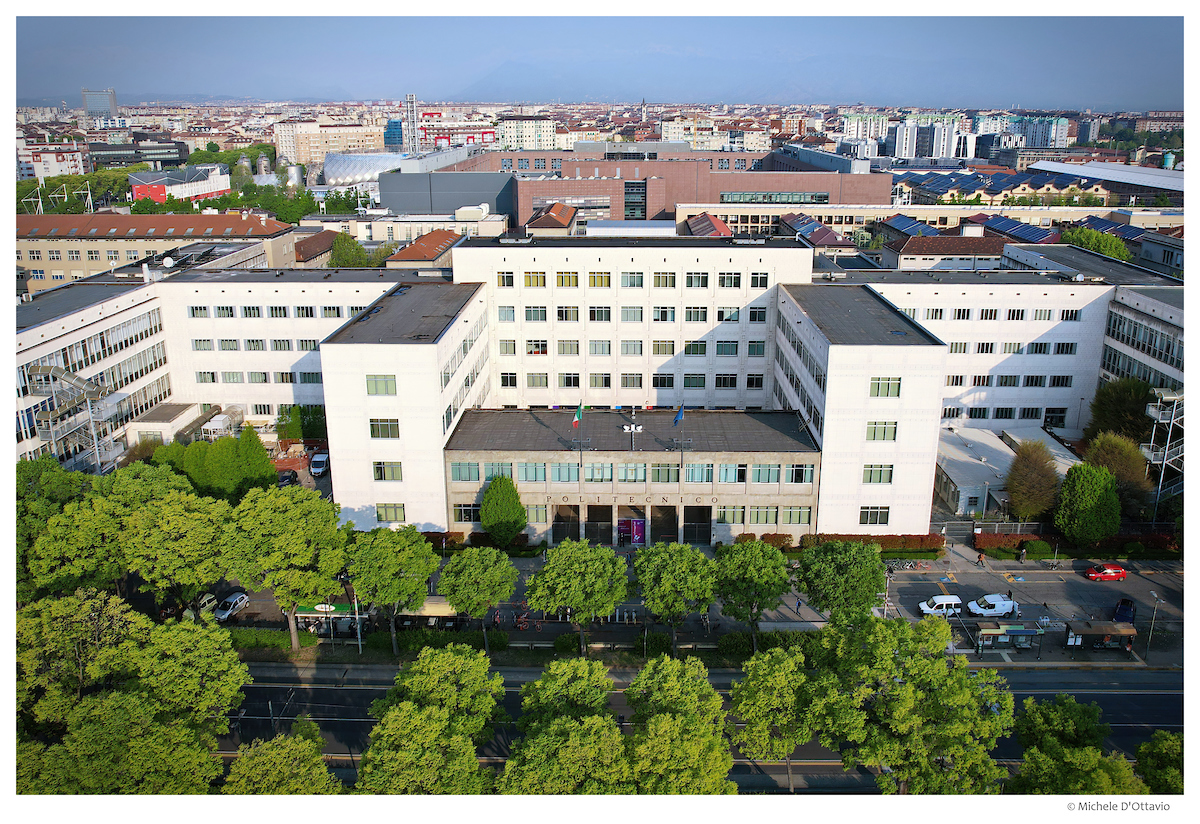
about us
POLITECNICO DI TORINO
Politecnico di Torino was the first Italian Engineering School founded in the wave of the technical and scientific innovation that gave rise to the most prestigious European polytechnic schools in the mid-19th century. Founded as School for Engineers in 1859, it then became Regio Politecnico di Torino in 1906. Engineers, architects, designers and urban planners have been trained at Politecnico di Torino for over 160 years with rigor, integrity and high-level standards.
This long ever-changing history has rated Politecnico among the top European technical Universities for education and research, with 38,700 students and a teaching staff of more than 1,000.
In an evolving global context disrupted by the effects of globalization, climate change, population aging, new and increasingly pervasive technologies, Universities are expected to progress in order to produce an impact on a rapidly changing society. Politecnico di Torino has therefore decided to transform itself into a “platform” University expected to be permeable, inclusive, open to the labour market and to industry, with a key role in innovation and lifelong learning. The goal is to become a driving force for a societal sustainable development.
The Polito4Impact Strategic Plan established as one of the strategic guidelines the creation of value chains combining education, research, innovation, financial services and the enhancement of intellectual property. The objective is to develop clusters for industrial development that can attract large companies, small and medium enterprises and start-ups in order to gather PoliTO graduates in the local territory.
Department of Applied Science and Technology
The Department of Applied Science and Technology (DISAT) is dedicated to advancing research and education in the core principles of matter and energy, their transformations, and their engineering applications. DISAT’s multidisciplinary approach spans condensed matter physics, fundamental interactions, nanotechnology, chemistry, materials science, and metallurgy. The department is actively engaged in chemical, physical, materials, and food engineering—covering everything from the conception of innovative processes and the development of new chemical reactors and process units (using both modeling and experimental techniques), to optimizing control strategies and devices, and designing pilot- and industrial-scale plants.

Electrochemistry Group
The aim of the research group is focused on electrochemical and photoelectrochemical energy generation and storage systems, in order to be able to face the energy challenges of the near future, for example electric transportation, energy storage of intermittent renewable sources, the integration in smart grids and with energy conversion technologies. The research activity of the group is focused on the preparation and characterization of new materials for high-voltage lithium-ion batteries and “post lithium-ion” systems, the electrochemical production of ammonia and fertilizers, and hybrid energy conversion and storage systems or solar fuels.
PEOPLE
Full Professor of Chemistry at the Department of Applied Science and Technology (DiSAT), Politecnico di Torino, Italy. Previously, she led the Functional Nanosystems group as Principal Investigator at the Italian Institute of Technology (IIT). Her scientific journey began with a PhD at Ludwig-Maximilians-University in Munich, and a postdoc at Politecnico di Milano, where she studied hybrid nanomaterials. A Marie Curie global fellowship took her to the Molecular Foundry in Berkeley and back to IIT Genoa, where she obtained the ERC Starting Grant in 2019. She has also coordinated the LIGHT-CAP FET Proactive project and two ERC POCs (CONDINKS and STORE-LIGHT). He is associate editor of Optical Materials (Elsevier). Kriegel’s research focuses on developing functional nanosystems for renewable energy and advanced nano/micro-devices. Beyond her professional achievements, Ilka is a mother of four, exemplifying how women can balance a successful academic career with family life.

Teresa Gatti
Full Professor of Chemistry for Applied Technologies (DiSAT), Politecnico di Torino , Italy. She was a previous Group Leader at the Center for Materials Research of the Justus Liebig University Giessen (Germany), where she maintains the permanent role of affiliated researcher. She is recipient of the 2021 European Research Council Starting Grant with a project on Janus 2D materials. With her team in Italy and in Germany, she works on the synthesis and characterization of novel low-dimensional systems for use in energy-related and (opto)electronic applications, with major focus on sustainability. She is associate editor of the Springer Nature journal npj 2D Materials and Applications.

Francesco Scotognella
Full professor of Physics at Politecnico di Torino, since July 2023. He has been assistant/associate professor in Physics at Politecnico di Milano (2011/23). He studied at Università di Parma and Università di Milano-Bicocca, where he got the PhD in Materials Science in 2009. In 2008 he has been visiting scientist at University of Toronto, in 2013 visiting professor at NTU Singapore and in 2016-2018 visiting scientist at Berkeley Labs. He has been post doc in the EU Project Photo-FET (FP7-ICT-248052) at Politecnico di Milano. He is studying the photophysics of nanostructures and the optical properties of photonic structures. He has been coordinator of SONAR, EU MSCA RISE project (2017/22), and principal investigator of PAIDEIA, ERC 2018 Consolidator Grant (http://www.paideia-h2020.eu/) and of TCOtronics, ERC PoC. He is editor of Optical Materials (Elsevier), Scientific Reports (Springer), and Ceramics (MDPI), and associate editor of Optical Engineering (SPIE).

Andrea Rubino
Earned, in 2020, the PhD from the University of Seville, in Science and Technology of New Materials working at the Institute of Material Science of Seville (CSIC-US), within the Multifunctional Optical Material research group. Since March 2021, he has been a postdoc researcher in the FuncNano group of the Italian Institute of Technology, headed by Dr. Ilka Kriegel. The interests developed during his scientific career concern nanomaterials for optoelectronic applications, from synthesis and preparation to fundamental characterization and implementation in energy devices. His work focuses on the use of semiconductors nanocrystals, such as perovskites, metal oxide nanoparticles and porous systems, and on the study of structural and photo-physical properties for energy applications based on light interactions. Currently is an Assistant Professor at Politecnico di Torino leading the project PEROVSKAP within the Ministry of University and Research financial framework, Young Researchers 2024 – SOE.

